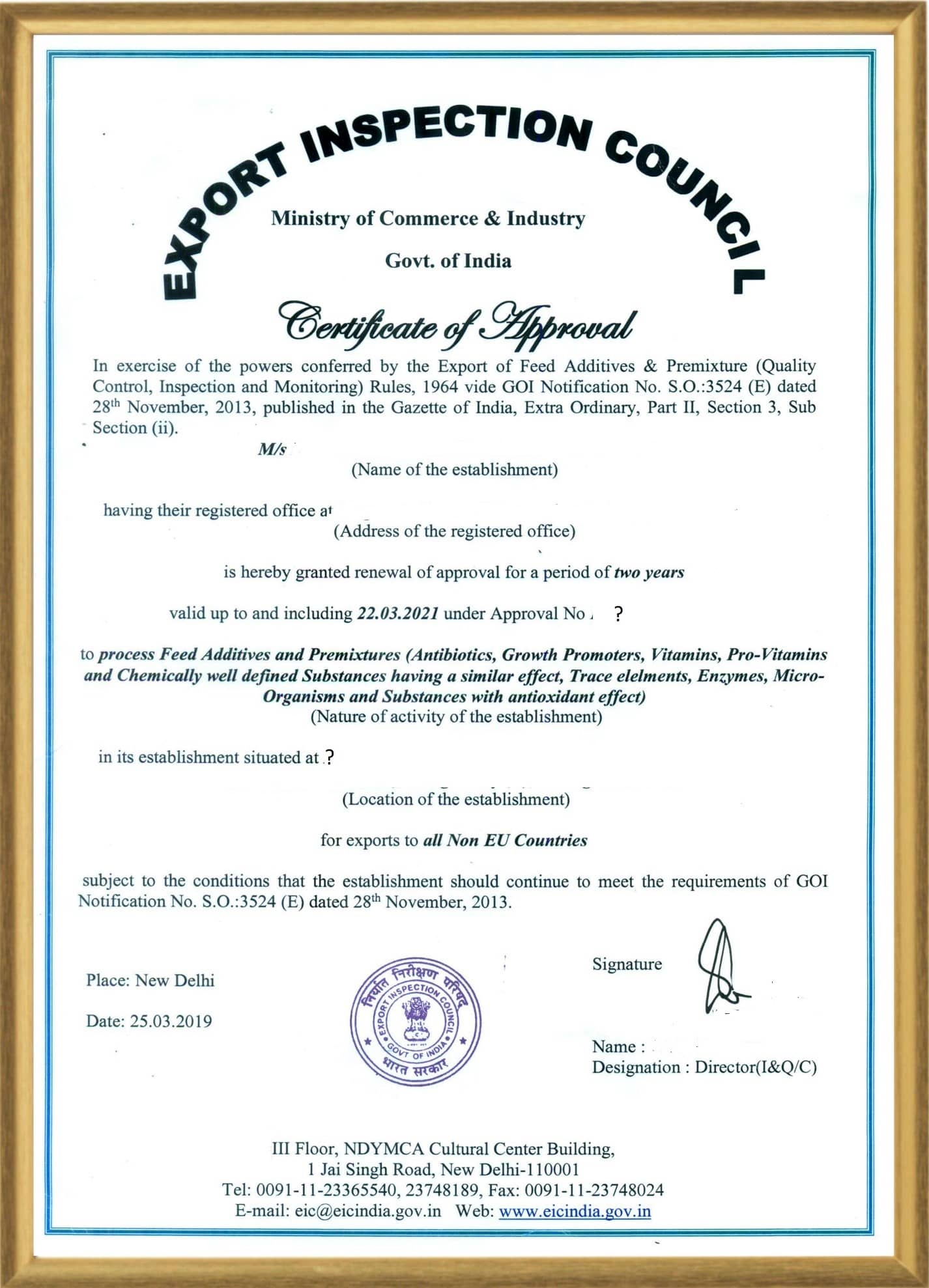The Export Inspection Council (EIC) is India’s official export-certification authority, formed to certify the safety and quality of products that are exported from India. Set up by the government, the Export Inspection Council falls under Section 3 of the Export (Quality Control and Inspection) Act, 1963. An exporter can only sell goods internationally if it can meet the importing country's requirements, both in terms of quality and safety.
Export Inspection Council has an experience of more than four decades in inspecting, testing and certifying export items based on the import country’s requirements. Notably, EIC is the only organization in India with a global acceptance in the field of certification.
The Role of Export Inspection Council
Ensure the quality and safety of products
Export Inspection Council assures the quality and safety of the products specified under the Export (Quality Control and Inspection) Act 1963 through either quality assurance or food safety management-based certification or a consignment wise inspection. Export Inspection Agencies (EIAs) are located at Delhi, Mumbai, Kolkata, Chennai, Kochi and a network of 30 sub-offices are backed by NABL accredited laboratories at various places. EIC provides compulsory certification for different kinds of food items like fish and seafood, honey, dairy products, egg and poultry products, meat and meat products, etc. Certification of other food and non-food products can be done voluntarily.
Provide Certifications
These are some of the certifications that EIC facilitates, either by itself or through its network of field organizations.
- Quality Certification for export goods by installing quality assurance procedures (In-process Quality Control and Self-Certification) in the export units and via consignment-wise examination.
- Quality Certification for exportable food items by installing Food Safety Management Systems (FSMS) in the food dispensation units, that are on par with international guidelines.
- EIC issues various certificates like health and authenticity, to exporters through multiple product export schemes.
- Certificates of Origin are issued to exporters through preferential tariff policies for products.
(A sample certificate issued by the EIC)

Quality control and safety inspections
Export Inspection Council takes care of quality control, safety inspections and matters related to it, as instructed under Export (Quality Control and Inspection) Act. Through its initiative or its field organizations, Export Inspection Council also provides services such as,
- Laboratory testing facilities for exporters who want to get testing done, either voluntary or as a part of exporting requirements.
- Export Inspection Council also gives recognition to Inspection Agencies as per ISO 17020 and Laboratories as per ISO 17025 and utilizes them for export inspection and testing.
- Export Inspection Council trains and technically assists the industry while installing Quality and Safety Management Systems. These are built on tenets of Hazard Analysis Critical Control Point (HACCP), ISO-9001: 2000, ISO: 17025 and other associated international criteria, laboratory assessment, etc.
Export Inspection Council and its Export Inspection Agencies are equipped and experienced in the quality management and review of notified goods along with checking according to international criteria or importing countries’ standards, and specifications of importers.
> Also Read : 12 Documents Required for Export Customs Clearance
Export Inspection Council and the Exporter
Some of the powers of the EIC have a direct bearing on exporters. For example, the Director of Inspection and Quality Control can authorize the entry and inspection of any premises, particularly if malpractice or foul play is suspected. For the same reason, authorized officers can also search the premises. Officers authorized by the EIC can also seize commodities, though not beyond a specified period. The organization is also authorized to seize and search conveyances. They can confiscate any commodity, regarding which certification was fraudulently obtained or any provision of the Act was contravened.
As an exporter, it would be advisable that you are aware not only of the services and scope of EIC but also its powers.
The process of certification and its significance
An exporter can avail of the services of the Export Inspection Council and its network organizations for the compulsory inspection before the shipment of products notified under Section 6 of the Export (Quality Control & Inspection) Act, 1963. Exporters can avail services for the products not notified in the section, by paying the requisite fee.
While undertaking the inspection or certification, the EIC considers the basis of the exercise, which could be one or more of the following
- The requirement of the inspection/certification may be laid down in the notification itself.
- The requirement may be defined by the international buyer.
- Inspection or certification as per the requirements of importing countries.
- It could be done as per the national or international standards relevant to the product.
- The process could follow contractual specifications.
> Also Read : Let Export Order or LEO : Everything You Need to Know
The Export Inspection Council’s primary objective is to ensure that the products comply with the requirements of the importing country and the importer. EIC’s Certificate of Inspection declares that the imported products were in acceptable condition immediately before the shipment. This and other EIC services are significant for the export trade as they provide an independent and third-party certification and act as an official assurance of quality. As a part of the agreements and MOUs signed with various import control bodies, the Export Inspection Council's certification is considered as proof that the products meet their country’s requirements.
Also Read:
- What is ICEGATE and what services does it offer?
- Shipping Bill | Understand the Meaning, Types & Format
- Export Payment Terms | Methods of Payment followed in International trade
- CBM | Meaning, Calculation, & More
- Overdraft Facility | What is it & How does it work
- Forex Hedge | Currency Hedging Strategy for Exporters




